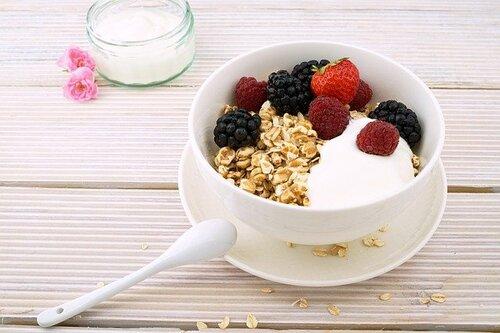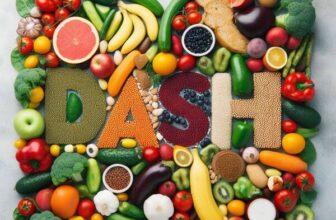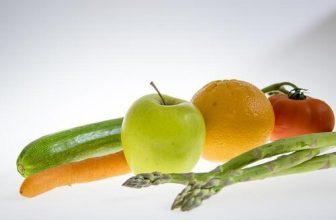
(Note: Some of the links in this post are affiliate links, and we will be compensated when you make a purchase by clicking through our links at no additional cost to you.)
Eat more fiber! Most likely, you’ve it before. However, do you know why fiber is so beneficial to your health?
Dietary fiber is composed of nondigestible carbohydrates and lignin that are intrinsic and intact in plants (parts of plant foods your body can’t digest or absorb). Diets rich in dietary fiber have been shown to have a number of beneficial effects, including decreased risk of coronary heart disease and improvement in laxation. In addition, recent research finds diets containing fiber-rich foods can combat effects of type 2 diabetes and high blood pressure (hypertension).
>>> Discover The Most Accurate Blood Pressure Monitor For Home Use
2 Basic Types of Fibers
Fiber comes from plant-based foods (like fruits and vegetables). Animal-derived foods are devoid of fiber. There are 2 basic types of fibers – soluble and insoluble. Both types are present in most plant meals. However, certain meals have a higher concentration of one than the other. Both types of fiber are good for your body.
Soluble fiber
This type of fiber breaks down in water to from a gel-like substance. Soluble fiber helps in lowering your blood cholesterol levels. And lower cholesterol levels help to reduce your risk for heart disease. If you have diabetes, soluble fiber can help to control your blood glucose levels, too.
Soluble fiber is found mostly in:
- vegetables
- fruits
- beans
- barley
- brown rice
- oats
- oat bran
Insoluble fiber
Insoluble fiber helps prevent constipation (if you drink enough fluids during the day too). It does this by adding “bulk” to your stool which promotes the movement of material through your digestive system. This may help to prevent colon cancer, since it shortens the amount of time waste stays in your body.
Insoluble fiber is found mostly in:
- wheat
- wheat bran
- other whole grains

What Are The Benefits Of A High-Fiber Diet?
As mentioned before a high-fiber diet has many health benefits. Here are 6 benefits:
- Promote normal bowel movements – Dietary fiber softens and increases the weight and volume of your stool. Your likelihood of developing constipation is reduced by a bulky stool as it is easier to pass. Fiber absorbs water and gives stools volume, so if you have loose, watery stools, it might help to solidify them.
- Aids in blood sugar regulation – Fiber, especially soluble fiber, can help control blood sugar levels in people with diabetes by slowing the absorption of sugar. Insoluble fiber may also help lower the risk of type 2 diabetes.
- Lowers cholesterol levels – Low-density lipoprotein, or “bad,” cholesterol levels may be decreased by soluble fiber contained in beans, oats, flaxseed, and oat bran, which may help lower total blood cholesterol levels. High-fiber foods may also help your heart by lowering blood pressure and inflammation, according to studies.
- Helps maintain a healthy weight – You will probably eat less and feel fuller longer if you consume high-fiber foods instead of low-fiber ones.
- Prolongs your life – Increased dietary fiber consumption, particularly from cereal fiber, may lower your chance of dying from all cancers and cardiovascular disease, according to studies.
- Aids in bowel health – A high-fiber diet may reduce your risk of developing hemorrhoids and small pouches (diverticular disease). A high-fiber diet is likely to reduce the incidence of colorectal cancer, according to studies.
How Much Fiber Do Your Need?
The Food and Drug Administration recommends that persons consuming 2,000 calories a day should consume 28 grams of fiber daily. The age or sex of a person may also affect this figure.
The following fiber amounts are suggested by the USDA’s Dietary Guidelines for Americans:
| Under 50 | 51 and Older | |
|---|---|---|
| Women | 25 to 28 grams per day | 22 grams per day |
| Men | 31 to 34 grams per day | 28 grams per day |
Depending on their age and sex, children from 1 to 18 years old should consume 14 to 31 grams of fiber per day.
>>> Discover The Top DASH Diet Cookbooks To Help Lower Your Blood Pressure







